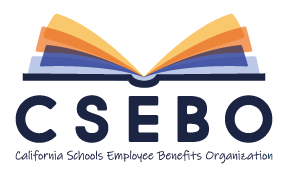Joint Powers Authority

"Joint powers" is a term used to describe government agencies that have agreed to combine their powers and resources to work on their common problems. Joint powers agreements (JPAs) offer another way for governments to deliver better services.
Joint powers are exercised when the public officials of two or more agencies agree to create another legal entity or establish a joint approach to work on a common problem, fund a project, or act as a representative body for a specific activity.
A joint powers agency or joint powers authority (JPA) is a new, separate government organization created by the member agencies, but is legally independent from them. A JPA shares powers common to the member agencies, and those powers are outlined in the joint powers agreement.
History Of Our Organization
The California Schools Employee Benefits Organization (CSEBO) is a Joint Powers Authority (JPA) established in 1991 for the purposes of providing medical, dental and vision benefits for employees and officers of the public educational agencies who are Members. CSEBO establishes and maintains a fund for the purpose of paying the cost of insurance coverage, operating expenses, claims and service contracts, and provides a forum for discussion, study, development, and implementation of recommendations of mutual interest regarding insurance and benefits.
The concept of developing a self-funded Employee Benefits Organization to include active and equal voting participation of employee groups was initially explored by the Ventura County Schools, as a group, in January 1989.
In February 1989, a county-wide workshop was held to review and discuss the future direction of the benefits program offered to Ventura County Schools. Attendance included 40 people, representing Superintendents, Business Officials, and Representatives from various employee groups and bargaining units.
Subsequently, a Provisional Committee was established to further explore the concept and organizational structure, and to develop an organization which would address the needs of its Members.
This Provisional Committee was comprised of business officials, teachers, classified personnel and superintendents. The Provisional Committee developed the organizational structure, establishing documents, financial policies, operational procedures, and the name, Coastal Schools Employee Benefits Organization (CSEBO).
In 2019, the Board of Directors approved changing the name of the organization to California Schools Employee Benefits Organization to expand their availability for providing medical, dental and vision benefits to the entire state of California.
Our Purpose
CSEBO is an organization that makes affordable health care coverage its primary goal. CSEBO is governed by its Members, including both labor and management representatives, to provide pooled Medical, Dental and Vision benefits. CSEBO acts as a resource to its Member Districts to help reduce, control, and/or eliminate risks, thereby saving money to use for educational purposes.
CSEBO is not an insurance company. Self-insured programs, like CSEBO, are created and administered by their Members to provide mutually what they could not obtain separately. CSEBO members are the bearers of risk, and the relationship is different from that which exists within an insurance company.
CSEBO is a family of school districts established to offer the best health benefits in the most efficient manner. What each member district has done is to self-insure by joining with other districts in lowering expenses. Everything CSEBO does is under the supervision of its member districts. CSEBO provides a stable, long-term method to protect against risk. A key element in any self-insured organization is member commitment and participation which stimulates the program to grow and prosper; this is something that does not exist in a relationship with an insurance company.
There are many advantages to pooling risks, including reduction or elimination of large profits, huge overhead costs, and other add-ons of insurance companies that would raise the costs of a program significantly above its actual experience costs.
In summary, CSEBO is an organization formed by its Member school districts to offer programs of self-insurance. By doing this, CSEBO allows its Members direct management and control.
Operations
CSEBO is governed by a Board of Directors. The Board consists of two Representatives and two Alternates from each Member school district. The Board of Directors meets every other month to approve the budget, plan offerings, expenditures, and to oversee the operations of the organization. A five-member Executive Committee is elected from and by the Board at its annual meeting in May.
The day-to-day administration is overseen by the Executive Director, with four additional employees, including a Health Benefits Manager that provides Member districts with day-to-day client service, counsel and information regarding employee benefits and customized wellness programs.
As a California Public Agency, CSEBO is subject to and complies with Open Meeting laws and the notice provisions of the Brown Act. All Board meetings are open to the public.
In addition, CSEBO has an annual review of its accounts and records by an independent, Certified Public Accountant and files an annual report and audited financial statement with the State Controllers Office. All Board and Alternate members file a Statement of Economic Interests form with the California State Fair Political Practices Commission.
CSEBO currently offers 11 plans for active employees and early retirees, 7 plans administered through Anthem Blue Cross (5 of which are self-insured PPO's) and 4 HMO's offered through Kaiser Permanente. CSEBO also offers its Members ancillary coverages: 6 self-insured Delta Dental PPO plans,2 self-insured vision plans (administered through VSP), an Employee Assistance Program through Optum, as well as Basic and Voluntary coverages through The Hartford for life insurance.
CSEBO also utilizes an online platform, Benetrac, for handling enrollments by District staff, with the ability for employees to self-enroll in plan offerings. Benetrac allows CSEBO and District staff to effectively and efficiently manage enrollments, with built-in reporting for billing and enrollment tracking. Additionally, Benetrac can mass update by Member to streamline enrollments and mid-year demographic updates (addresses, phone numbers, etc.) to ensure carriers have the most up to date information.
Governing Documents
Establishing Agreement
Third Restated Bylaws
Financial Policy